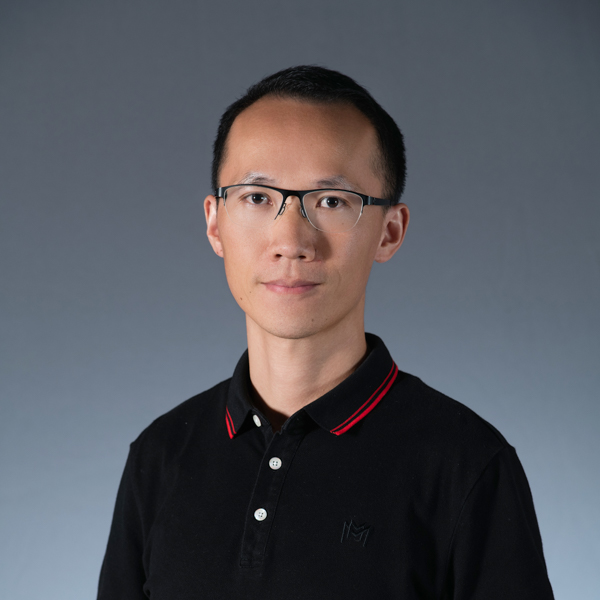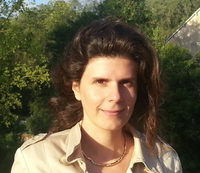HotSense
ACM International Workshop on Thermal Sensing and Computing
Co-located with ACM MobiCom 2025 | November 8, 2025 | Hong Kong, China

Co-located with ACM MobiCom 2025 | November 8, 2025 | Hong Kong, China

Thermal is the new visual—with privacy. As smart systems move ever deeper into our homes, hospitals, factories, and cities, the demand for privacy-preserving, spatially rich, and context-aware sensing has never been greater. HotSense is the first dedicated workshop to explore the full stack of thermal sensing and computing, bringing together researchers from mobile computing, embedded systems, HCI, computer vision, robotics, and AI to chart this fast-emerging frontier.
From gesture recognition to depth estimation, from indoor localization to human-machine interaction, from health monitoring to emergency response, thermal sensing offers a powerful yet underexplored modality for ubiquitous computing. With increasingly accessible and compact sensors (e.g., FLIR, Melexis, Meridian), researchers are deploying thermal systems where traditional vision and RF sensing fall short, whether in low-light, occluded, or privacy-sensitive environments.
HotSense @ MobiCom 2025 offers a timely, interdisciplinary venue to shape the future of thermal computing:
At its core, HotSense aims to catalyze a vibrant research community around thermal perception and computation—one that spans algorithms, hardware, systems, and real-world applications.
🔥 Thermal sensing is hot! Join us at HotSense @ MobiCom 2025, and help redefine how intelligent systems perceive and interact with the physical world—with thermal.
HotSense is the first workshop dedicated to the full spectrum of thermal sensing and computing across mobile, embedded, and intelligent systems. We welcome original research papers, position papers, and early-stage exploratory work that examine the design, implementation, analysis, and application of thermal sensing systems.
While particular attention will be given to low-cost, low-resolution thermal arrays, the workshop encourages broader contributions across the hardware–algorithm–application stack, including novel sensing modalities, computing frameworks, and cross-disciplinary applications.
Topics of interest include (but are not limited to):
If you have any questions, please contact Chengxiao via email.
📍 Location: Room 2304 (Lift 17/18), HKUST
🕐 Time: 8:30 AM - 12:30 PM
Abs: The emerging Industry 4.0 of smart technologies calls for a future with scalable human-robot social interactions. It is expected that one in ten vehicles will be automated by 2030, and millions of robot helpers will be serving people. Each of these intelligent agents will ‘observe and see’ its surrounding scene through advanced sensors, to form a computer vision and make decisions without human intervention. Traditional cameras cannot function in the dark. State-of-the-art sensors (such as LiDAR, radar, and sonar) to enhance the camera vision face difficulties when the number of intelligent agents scales up. Thermal imaging could be a new frontier in machine perception but suffers from the ‘ghosting effect’. Based on our recent research, this talk will elaborate on the mechanism of the ghosting effect and how HADAR, as featured in Nature (2023), can overcome it, enabling high-resolution night vision for future machine perception.
Bio: Dr. Fanglin Bao is an assistant professor in the School of Science, Westlake University, focusing on information physics and optics. Dr. Bao received his B.S. in Physics (2011) and Ph.D. in Optics (2016) from Zhejiang University. He studied quantum vacuum fluctuations, worked out the renormalization of the Casimir force in inhomogeneous systems, and discovered the inhomogeneity-induced Casimir transport phenomenon — a nanoscale ‘maglev train’ based on quantum levitation. Before joining Westlake University in 2024, he was a postdoctoral scholar and later a research scientist at Purdue University, where he worked on quantum optical sensing. He developed heat-assisted detection and ranging (HADAR), quantum-accelerated imaging, and adaptive photon-thresholding detection. For the series of work on HADAR, Dr. Bao was recognized with awards, including the Intelligent Computing Innovator in 2023 by MIT Technology Review.
Each presentation will have 5 min for talk and up to 2 min for Q&A
Geometry Aware 3D Multiview Thermal Reconstruction with Emissive Residual Decomposition Gaussian Splatting
Xiangyu Wen, Guangchi Fang, Bo Yang, Bing Wang (The Hong Kong Polytechnic University)
ThermalEye: Fully Passive Eye Blink Detection on Smart Glasses via Low-Cost Thermal Sensing
Yuhan Chen, Jingwei Song, Xie Zhang, Jianqi Zhang, Chenshu Wu (University of Hong Kong)
Thermal Smart Plants: Thermal Sensing for Non-Intrusive Device Energy Disaggregation
Agustin Zuniga, Musfira Khan, Ngoc Thi Nguyen, Naser Hossein Motlagh, Fatemeh Sarhaddi, Zahra Safaei, Yangyang Wang (University of Helsinki), Marko Radeta (University of Madeira), Huber Flores (University of Tartu), Sasu Tarkoma, Petteri Nurmi (University of Helsinki)
ThermiKit: Edge-Optimized LWIR Analytics with Agent-Driven Interactions
Lan Zeng, Chunhao Huang, Ruihan Xie, Zhuohan Huang, Yunqi Guo, Lixing He (The Chinese University of Hong Kong), Zhiyuan Xie (ThingX Technologies Limited), Guoliang Xing (The Chinese University of Hong Kong)
Privacy-Preserving Non-Contact Sleep Monitoring via Multimodal Thermal-Depth Sensing
Xuan Liu, Xie Zhang, Chenshu Wu (The University of Hong Kong)
Thermal-to-RGB Video Translation for Wildlife Monitoring: Enhancing Low-Resolution Thermal Imagery with Large Diffusion Models
Xinyu Hou (University of Oxford), Jonas Beuchert (Cardiff University; UK Centre for Ecology & Hydrology), Sangyun Shin, Andrew Markham, Niki Trigoni (University of Oxford)
TDiff: Thermal Plug-And-Play Prior with Patch-Based Diffusion
Piyush Dashpute, Niki Nezakati (University of California, Riverside), Wolfgang Heidrich (King Abdullah University of Science and Technology), Vishwanath Saragadam (University of California, Riverside)
Abs: The talk will give a sense of the market opportunities and the technical constraints that it brings about in the form of low cost and low-resolution thermal imagers. Further, it will highlight a few of the fundamental challenges to integrating such sensors in practical applications, and how these challenges are being tackled in industry. The three most obvious challenges are:
Bio: Dr. Stanislav Markov is a Scientist and Director at Meridian Innovation, where he leads multidisciplinary efforts in advancing thermal imaging technologies—ranging from silicon MEMS hardware to software-driven thermal data analytics for both consumer and commercial applications. His expertise extends across nanoelectronic semiconductor devices and materials, leveraging advanced modeling techniques such as molecular dynamics, atomistic DFTB + NEGF quantum transport, and statistical reliability analysis in CMOS technologies. In addition to his academic contributions, he has deep experience in scientific software development, TCAD/EDA tools, RTL design and verification for digital ASICs, SoCs, and FPGAs, as well as low-level hardware programming and process control system design.

The University of Hong Kong, HK SAR, China

University of Oxford, UK

University of California, Riverside, USA

A pioneering developer of advanced CMOS Thermal Imaging solutions